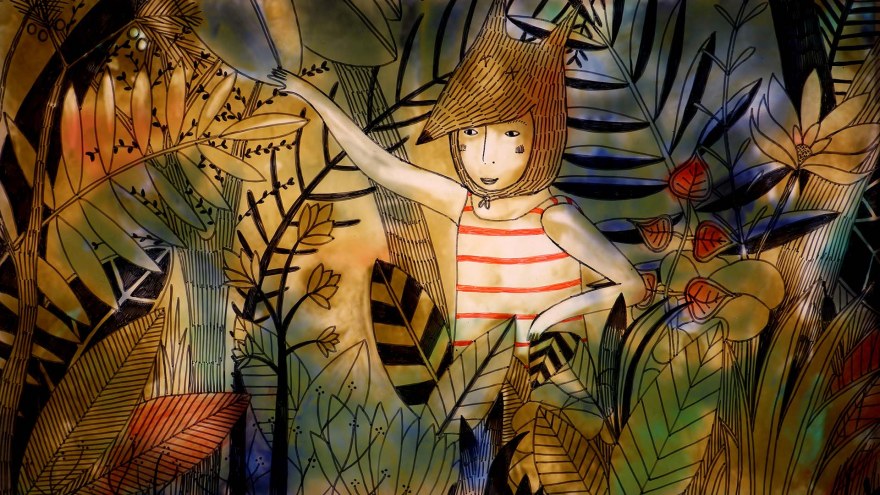Night cap with Moutons, loup et tasse de thé [Sheep, Wolf and Cup of Tea]
Interview with Marion Lacourt, director of Moutons, loup et tasse de thé [Sheep, Wolf and a Cup of Tea]
The film is dedicated to your grandmother. Can you tell us more about the connection?
The origin of the project is the image of my grandmother with bags of camomille tea on her eyes. That was one of the first pre-bedtime rituals I witnessed when I was a child and I slept at her house. She shone in the night – that’s how I remember her. Those precious moments were especially helpful for my imagination to develop and blossom at that stage in my life. So, yes, thank you grandma.
What are the origins of the transformation into a wolf?
I’ve always been intrigued by wolves. They’re animals that go against the grain. Awakening your inner wolf means listening to your real needs and finding your own voice inside the straightjacket of structuring habits that can be difficult to get out of when they no longer fit.
What is the significance of all the eyes?
Awakening. At different levels. Looking beyond the surface. Choosing to open them or keep them closed or hide them. There’s a whole evolving symbolism that develops out of the form of the eyes. Everyone has them but doesn’t make the same use of them. Sometimes we see better by looking within ourselves rather than out at the world.
Tell us a little bit about your style of animation.
I work directly under the lens with a black line and colored relief inks on backlit glass plates. It works pretty much like stained glass. In addition to the paths it traces in the material of my scenery, and which enrich the presence of my characters, it lets me use light like a genuine dramaturgical tool just like my line, my colors, my framing, etc. That supernatural brightness is present throughout the film and is part of the intended immersive effect.
Have you discovered any advantages that the short film form offers?
The short form is particularly dear to my heart. I quite like the idea that we can be transported somewhere completely different in one to twenty minutes. That’s the format’s power. You come inside or you don’t come inside. For me, it may be a more organic relationship to film in the way we use it. Also, that’s how I saw it in the context of this project, like a living form that I had to make sure I listened to. That’s why I let myself go back on the script throughout production. Constantly going back and forth between the multiplane rostrum camera and the script became a process that I accepted. Moreover, if I hadn’t done it, I would have missed the film’s essence with regard to my original intention.
Moutons, loup et tasse de thé [Sheep, Wolf and a Cup of Tea] is part of National Competition F7.








